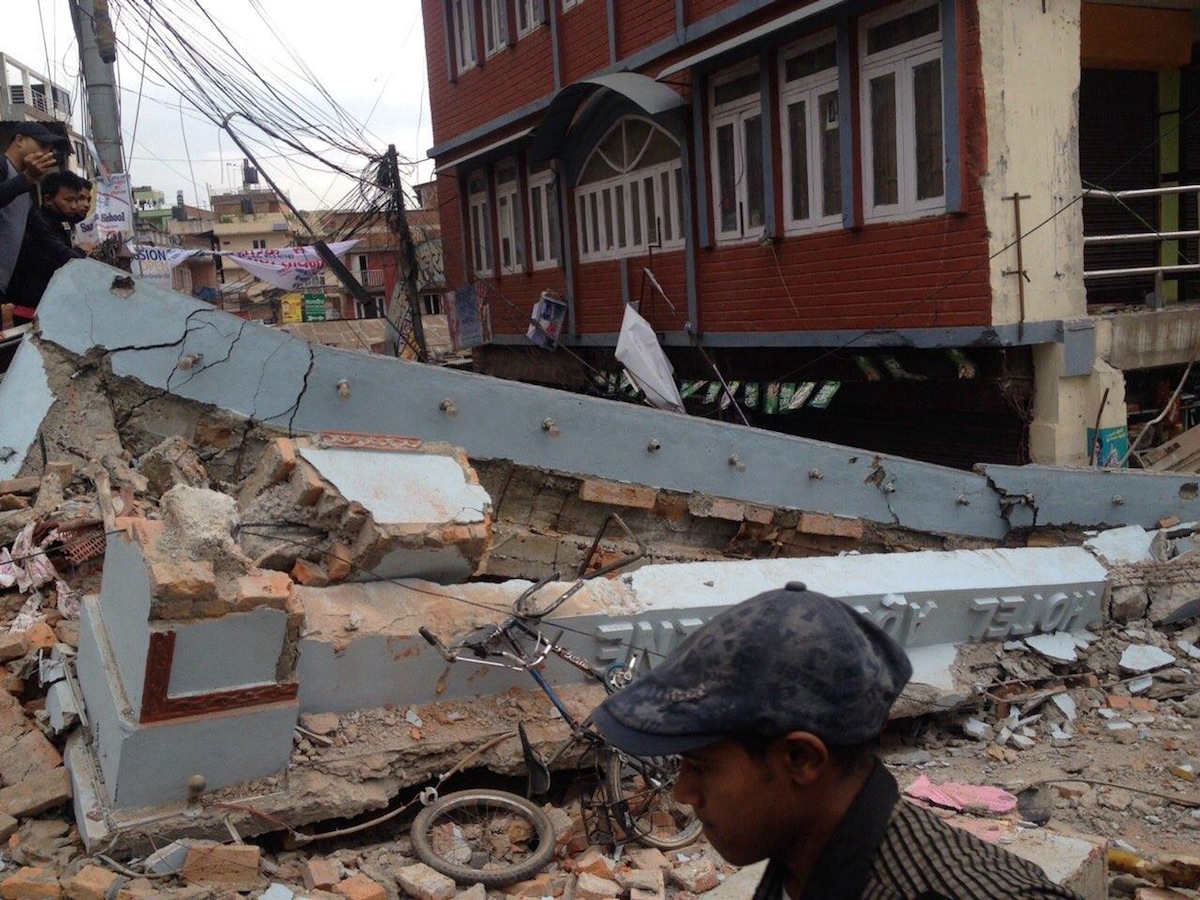The author of Nepal’s building code says the earthquake that killed more than 4,300 people and caused at least $2 billion in economic losses could have been less destructive if the code had been properly implemented and enforced.
The tragedy was predictable given the conditions of the nation’s building stock. “It was inevitable, absolutely inevitable,” Richard Sharpe told Bloomberg Business. Sharpe is a New Zealand earthquake engineer who led a team that formulated Nepal’s only set of building standards 20 years ago.
The earthquake struck during a period following a decade-long Maoist guerrilla war that preceded years of political struggles following the removal of a 240-year-old monarchy in 2008. The unrest made code implementation and enforcement much more difficult.
What’s more, the capital of Kathmandu has expanded to an old lake bed south of the city— an area that is unstable and susceptible to liquefaction—in recent years. Buildings have not been designed to cope with those conditions.
Related Stories
| Oct 25, 2012
Nashville providing incentives for green roofs
The city of Nashville, Tenn., is promoting the installation of green roofs through a measure providing a $10 reduction in a property's sewer fees for every square foot of vegetative roof.
| Oct 25, 2012
Net Zero buildings will use operating systems like computers to save energy
As buildings become more efficient and begin to use distributed electricity generation, they will need to become “smarter,” using operating systems much as a computer does.
| Oct 18, 2012
Princeton, N.J. residents upset over proposal to exempt colleges from land use laws
Princeton, N.J. residents criticized proposed legislation that would exempt private colleges and universities from following local land use laws for construction projects.
| Oct 18, 2012
Utah contracting firm challenges state immigration law
Universal Contracting LLC of American Fork, Utah, has filed suit challenging the constitutionality of Utah’s 2011 immigration law.
| Oct 18, 2012
More than 65,000 construction, design jobs may be cut if sequestration takes place
About $2 billion worth of construction and design projects would be eliminated if scheduled federal budget cuts, referred to as sequestration, take effect on Jan. 2, 2013.
| Oct 18, 2012
OSHA investigating parking garage collapse that kills four at Doral, Fla. college
OSHA is investigating the collapse of a five-story concrete parking garage under construction at Miami Dade College West Campus in Doral, Fla. that killed four workers and injured several others.
| Oct 18, 2012
EPA commercial building lead paint rule pushed back to 2015
The U.S. Environmental Protection Agency's inclusion of commercial buildings in a residential lead paint rule is being delayed until 2015.
| Oct 18, 2012
Chicago pushing green roofs to reduce heat island effect
The city of Chicago has mandated that all new buildings that require any public funds must be LEED certified, usually with a green roof.















